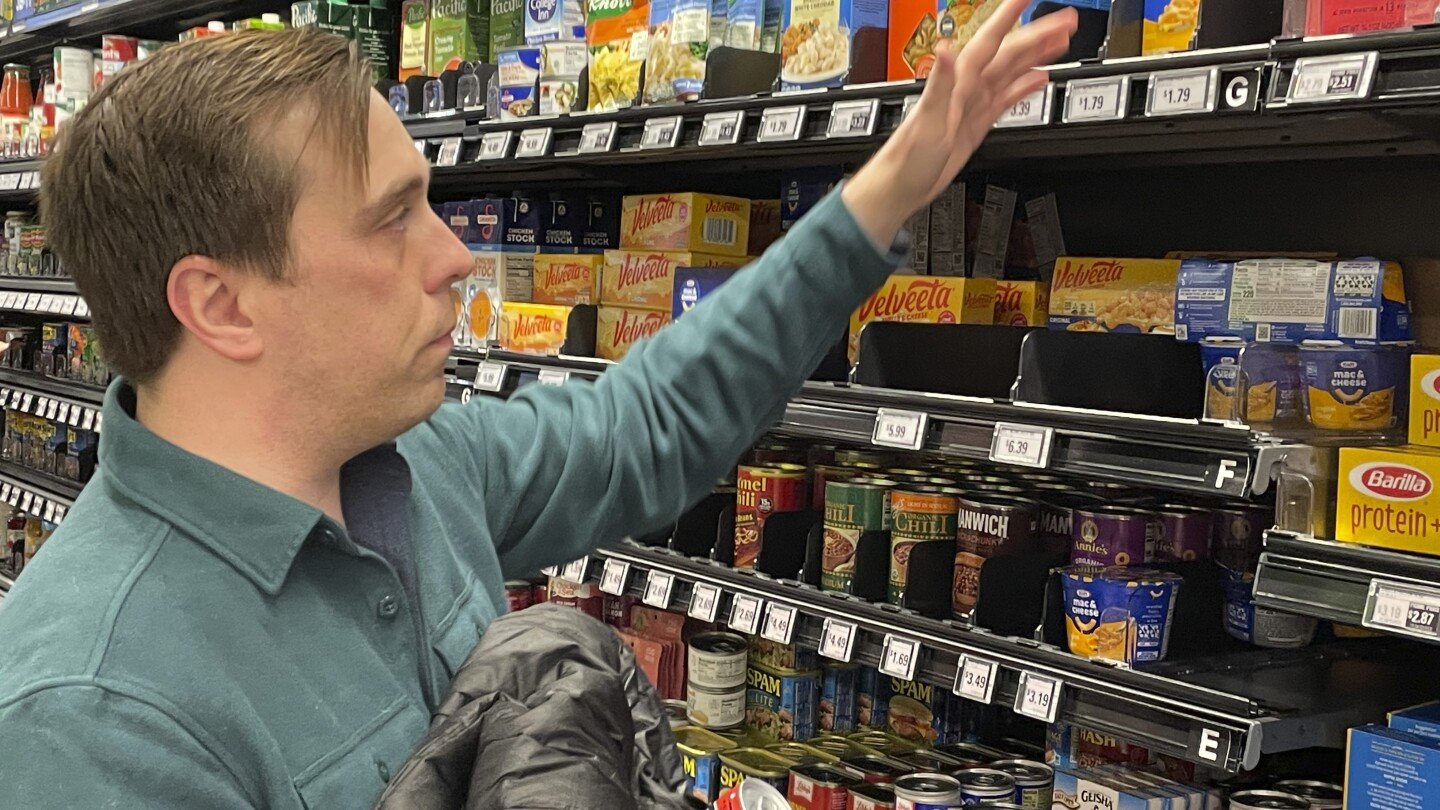Inflation has changed the way many Americans shop. Now, those changes in consumer habits are helping bring down inflation.
Fed up with prices that remain about 19%, on average, above where they were before the pandemic, consumers are fighting back. In grocery stores, they’re shifting away from name brands to store-brand items, switching to discount stores or simply buying fewer items like snacks or gourmet foods.
More Americans are buying used cars, too, rather than new, forcing some dealers to provide discounts on new cars again. But the growing consumer pushback to what critics condemn as price-gouging has been most evident with food as well as with consumer goods like paper towels and napkins.
In recent months, consumer resistance has led large food companies to respond by sharply slowing their price increases from the peaks of the past three years. This doesn’t mean grocery prices will fall back to their levels of a few years ago, though with some items, including eggs, apples and milk, prices are below their peaks. But the milder increases in food prices should help further cool overall inflation, which is down sharply from a peak of 9.1% in 2022 to 3.1%.
“ Fed up with prices that remain about 19%, on average”
Someone please point me to the grocery store that only increased prices by 19%, that’s where I want to shop.
Sounds like its the store brands that kept things in check and that’s why everyone started switching to them
WHY WON’T THEY INCREASE THEIR EXPENDITURE TO MATCH OUR PRICES? RECALCITRANT BITCHES
The American consumer only changes our habits after we run out of money and enter significant credit card debt.
Which is worse this year because interest rates are way higher, leading to significant profits for credit card companies.
Stupid American consumer remains stupid.
We’ve accelerated efforts to buy out cheaper competing brands and create more monopolies
Some people have. Others know how to get the most out of limited resources. Things like shopping Costco, BJs, Sams, etc and watching for close dated meat at your usual grocery store, finding local farms to get some meat and veggies from, etc. Local farms may be more expensive on some things but much higher quality across the board and some things will actually be cheaper.
Yes. This is how a free market, supply v demand, etc is supposed to work. It works for consumer goods like food, cars, bikes, kids toys, etc.
While people generally don’t need most of the things you listed on a regular basis, I would say food is a pretty standout exception.
Food is a necessity, not a consumer good like the other things you listed. You can live without a kid’s toy. You will literally die without food.
How well do the employees work when they don’t eat cuz they can’t afford to?
Well it’s about fucking time, ya fucking wankers! I’ve been not buying things I want for 4 years now, and have been constantly frustrated watching people stuck in mindless consumerism mode. Quit complaining and stop buying! Corporations don’t care what you say, the only metric they care about is if you keep buying or not. As long as everyone keeps buying, they’ll keep raising the prices.
In recent months, consumer resistance has led large food companies to respond by sharply slowing their price increases
This is not enough. Not enough by a mile! It means y’all are still buying much shit! Prices need to come down, not continue going up at a slower rate. That won’t happen until people stop buying.


